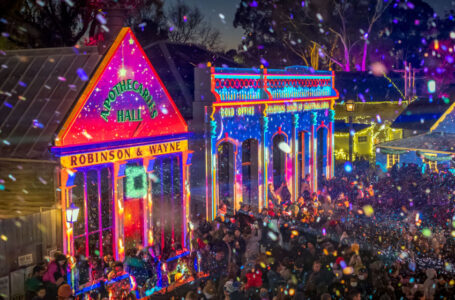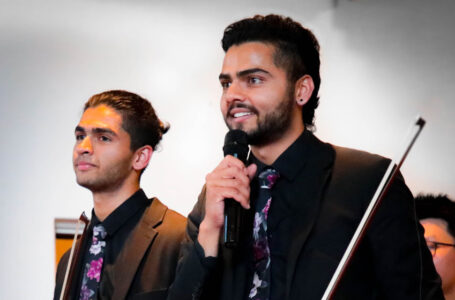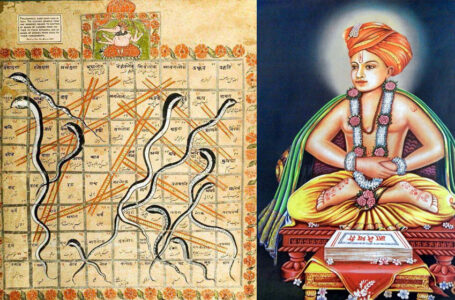7 bizarre festivals that you may not know about
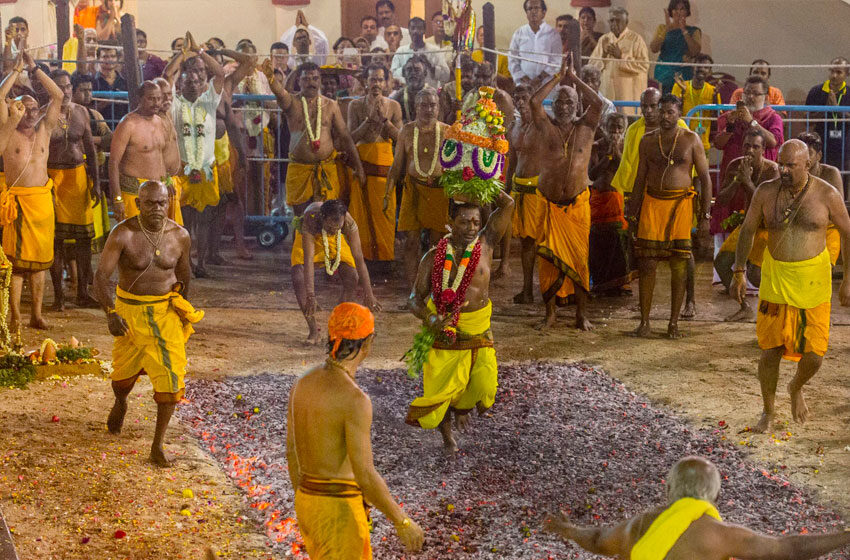
One of the distinguishing characteristics of India is the festivals that people celebrate across the country throughout the year. Also, due to the diverse communities, religions, and customs, different states have varied festivities. However, a few are unusual and lesser-known; some have their origin at least a century back, while others are a decade old.
Nonetheless, it never ceases to amaze us how unique and wonderful some celebrations are, as they bring people together. But a few of them are brutal and unpleasant; let us look at some of the most unusual festivals in India.
Lathmar Holi
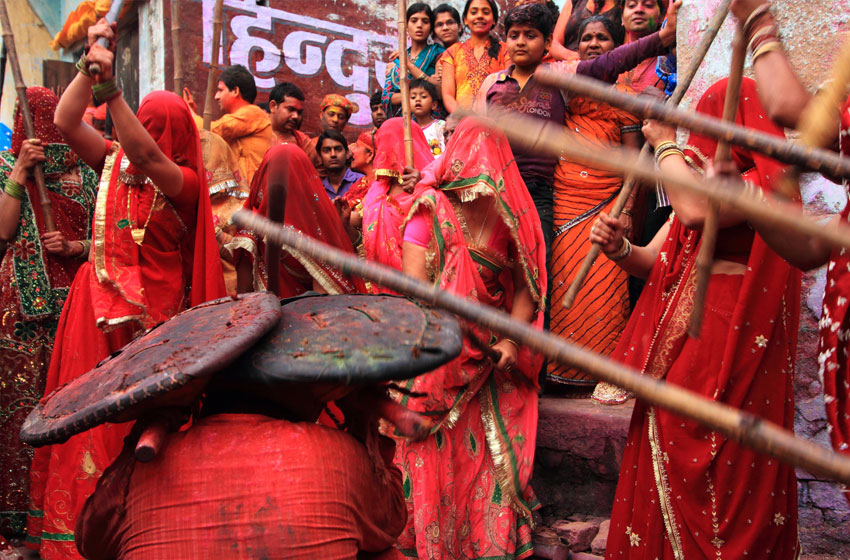
One of India’s most well-known and celebrated festivals is Holi, which people celebrate to welcome the arrival of spring and the end of winter. At the same time, it is also a day to celebrate the victory or triumph of good over evil; it is known as the festival of colours, wherein people across the Indian subcontinent smear each other with powdered colour and watercolour.
There is another form of holi that people celebrate, specifically in twin towns, Barsana and Nandgaon in Uttar Pradesh. Moreover, this festival is associated with the legend linked to the divine couple Radha Krishna; the festival seeks to recreate it. According to the legend, Lord Krishna, who was a resident of Nandgaon, wanted to spray the colours on his beloved Radha and her friends to tease them on the day of Holi.
But, as Krishna and his friends entered Barsana, they were playfully greeted with the sticks by Radha and her friends, who drove them out of Barsana. Following the same trend, every year, men of Nandagaon visit Barsana during the time of Holi and are greeted by women who playfully hurl sticks (aka lathi) at men.
Rural Olympics
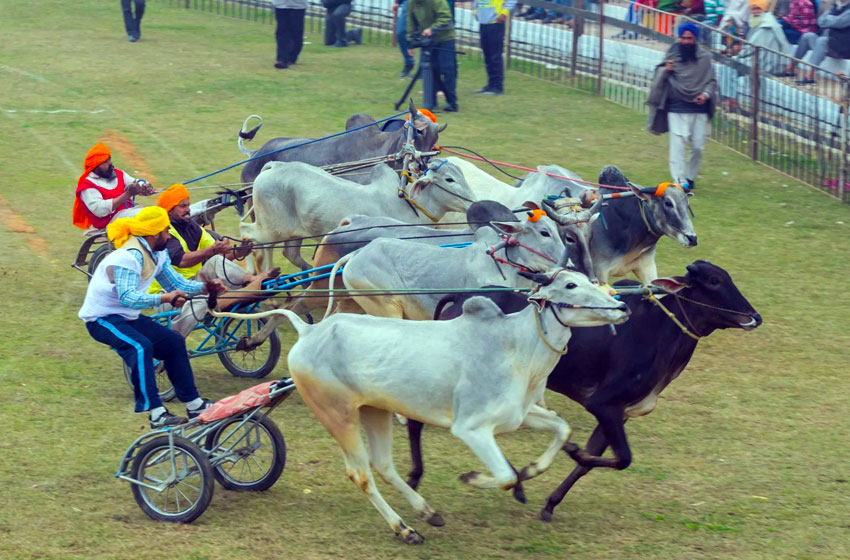
Inderjeet Singh Grewal, a philanthropist, began the rural Olympics Qila Raipur Festival in 1933 to bring villagers and locals together. Hence, he introduced recreational activities as competitive events between people from different villages. Also, ever since then, the Grewal family have continued to organise the festival with the help of the Grewal Sports Association.
Also, the festival’s venue is often a local sports stadium in the Qila Raipur village; it is held in February every year. Besides, some of the sports events include track races such as 100m, 200m, 400m, shot put, kabaddi and hockey. Similarly, those interested in showcasing their strength will bear the pain. The capability of balancing, some events involve a tractor running over an individual, holding a plough in the mouth, pulling a car by the hair, loading and unloading a tractor, dog/greyhound races, mule races, tug of war, horse races and several others. It is more of a competitive circus, focusing on testing human capabilities to the fullest.
Bhagoria Festival
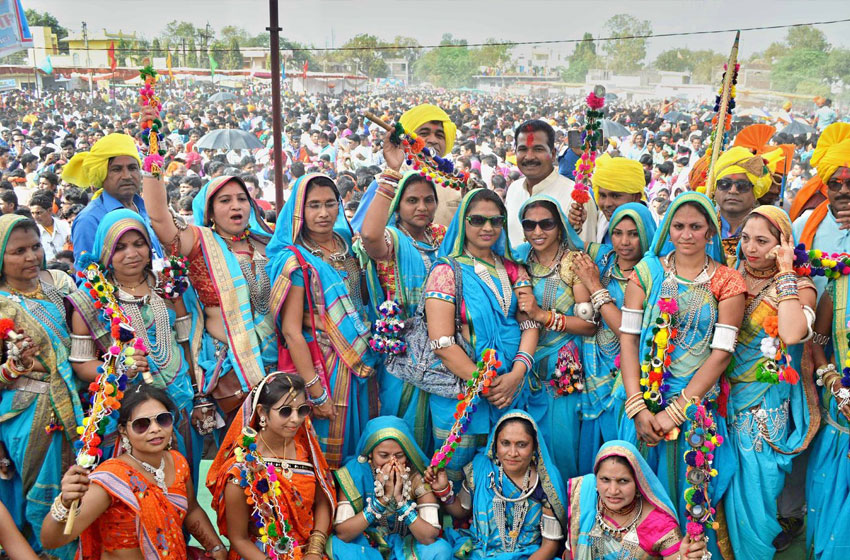
The tribal people of the Indian states of Madhya Pradesh and Maharashtra celebrate the Bhagoria or Bhangoria festival. Also, the Bhil, Bhilala and Pateliya tribes celebrate the festival for seven days in March before harvesting the crops. Furthermore, people travel with their families on decorated bullock carts, while some dance to traditional musical instruments and sing folksongs(Lokgeet).
Additionally, people also arrange a marriage fair on a large scale, wherein youngsters choose their life partner and elope with them. However, as per the traditional norms, their respective families accept the marriage and relationships of the eloped couple.
Snake Boat Race Festival
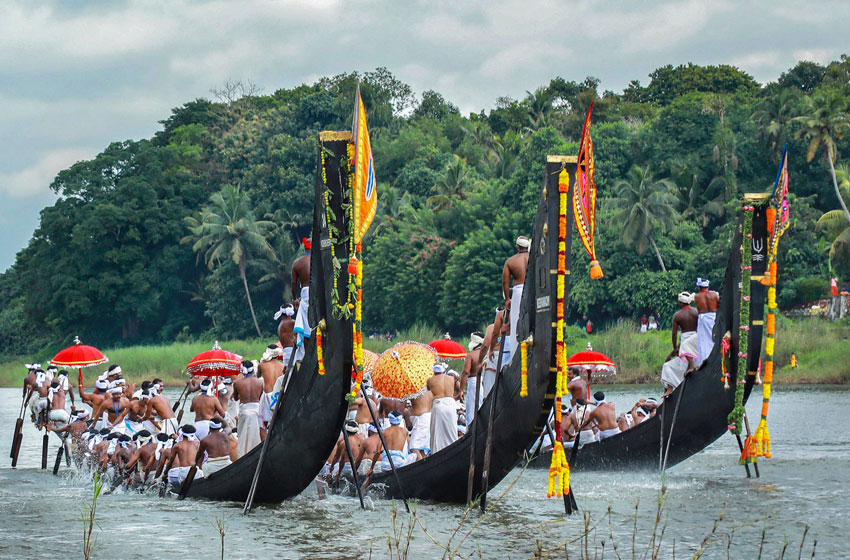
Snake boat races have been conducted in Kerala for nearly 400 years, and it is one of the most popular festivals in South India. Besides, it is held on the second Saturday of August every year and attracts a massive crowd as spectators. Additionally, the snake-shaped boats in which the sports take place are 100 ft long, and they compete in a race of how fast a huge team of boatsmen can row their boats.
Also, Champakkulam Moolam (Snake) Boat Race, Aranmula Vallamkali Boat Race, and Payippad Boat Race are some of the most famous snake boat races in July-September.
Theyyam
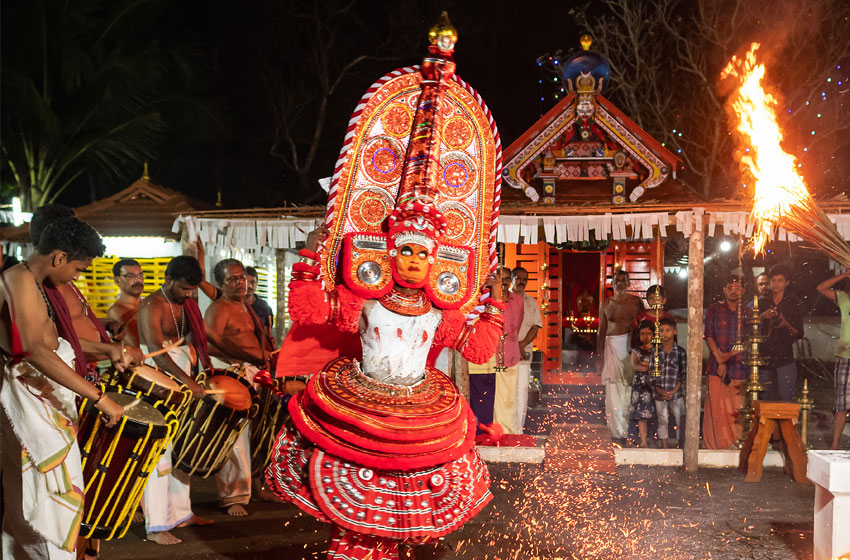
Theyyam is a famous festival that people celebrate in most parts of Kerala; it is a ritual form of dance worship in Kerala and Karnataka. Additionally, it consists of thousand-year-old traditions, rituals and customs; individuals who perform the ceremony consider themselves the channel or medium; thus, people seek blessings from them.
Moreover, there are 456 types of Theyyam majority of which the males perform except for Devakoothu, which the women perform accordingly in Thekkumbad Kollum temple, Kerala. Also, there is no stage, curtain or other arrangements for the performance; the chief dancer who invokes the god or ancestor worship resides in the rituals.
Along with the drummers, the dancer recites the particular ritual song, which describes the myths and legends of the shrine’s deity or the folk deity to be propitiated. Also, this is accompanied by the playing of folk musical instruments. After finishing this primary ritualistic part of the invocation, the dancer returns to the green room. Again after a short interval, he appears with proper make-up and costumes. Furthermore, there are different patterns of face painting.
Thimmithi
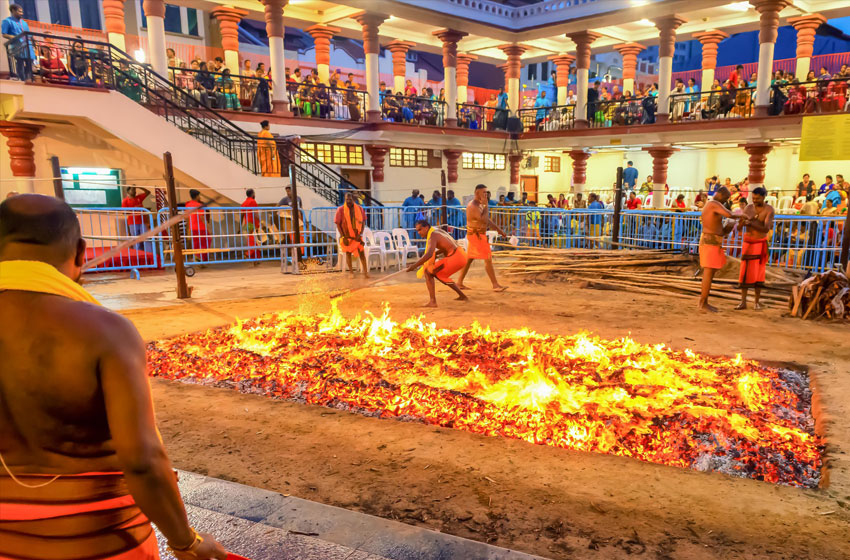
Thimmithi is an annual festival that people celebrate in Tamil Nadu every year during the month of Aipasi( October to November) in the Tamil calendar. Moreover, to commemorate and honour Draupadi, people celebrate the festival. According to the Hindu epic Mahabharata, Draupadi, the wife of the Pandavas, walked barefoot on burning coals to prove her purity.
Henceforth, the worshippers walk barefoot on burning embers to signify devotion and honour to Draupadi. But the celebration begins months before the actual event. Besides, this is because devotees take a strict vegetarian diet and practice fasting to make themselves pure from the inside and outside.
Also, they take part in grand prayer sessions. It is a common belief that only devotees as pure as Goddess Draupadi will be able to walk on fire without getting any injury.
Thaipoosam
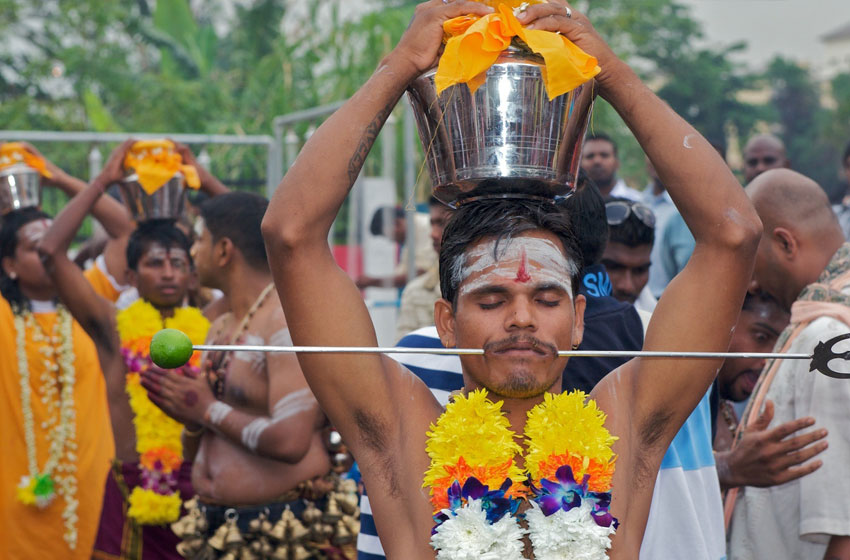
The Hindus of southern India celebrate Thaipoosam during the month of Thai( January- February); the festival is dedicated to the Hindu god Murugan, son of Shiva and Parvati. Also, as per the traditions and customs, people believe that on this day, Goddess Parvati presented a lance(a long weapon) to Murugan to defeat the demon Tarakasura and his army.
People celebrate the festival during the full moon in the Tamil month of Thai to signify the victory of good over evil. However, many fanatical devotees go to such an extent as to torture their bodies to appease the Lord. So, a significant feature of Thaipusam celebrations is body piercing with hooks, skewers and small lances called ‘vel’.



